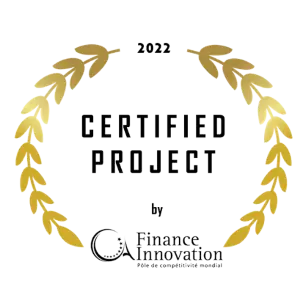)
EU Omnibus: What Finance and Sustainability Professionals Need to Know
EU Omnibus introduction
The EU Omnibus represents a significant milestone in the evolution of sustainability reporting across Europe. Introduced by the European Commission, the Omnibus package seeks to simplify existing reporting requirements while aligning companies with the new European Sustainability Reporting Standards (ESRS) under the CSRD (Corporate Sustainability Reporting Directive).
For financial services, asset managers, and corporates, this package will shape reporting obligations and influence investment decisions for years to come. Beyond compliance, the Omnibus provides the foundations for more consistent and comparable data, critical for investors, banks, and insurers seeking to evaluate sustainability performance and risks across portfolios.
The EU Omnibus builds on prior frameworks, integrating the EU Taxonomy, the due diligence directive, and international disclosure practices (TCFD for climate, TNFD for nature). Its goal is to reduce the reporting burden while strengthening transparency on climate, social, and governance metrics. Several proposals remain under review by the European Parliament and Council, with potential adjustments before final adoption.
The Objectives of the EU Omnibus
The European Commission designed the omnibus with three main objectives:
Simplification of reporting obligations: Companies reported challenges with the detailed requirements of CSRD and ESRS. The omnibus proposes adjustments to ease compliance, while maintaining decision-useful information for investors.
Alignment with sustainability and due diligence frameworks: The package connects with corporate sustainability due diligence obligations, including human rights, environmental impacts, and value chain risks. These elements directly support the expectations of investors aligned with TCFD and TNFD frameworks.
Enhanced clarity for financial services: By specifying expectations for financial institutions, the omnibus reduces uncertainty and fosters comparability in sustainable finance, especially relevant for disclosures under SFDR and taxonomy reporting.
Key Changes in Reporting Requirements
The EU Omnibus package introduces several substantive changes:
ESRS Adjustments: Simplified standards for SMEs, while large companies and financial services remain fully in scope. These disclosures are key inputs for investors’ climate and nature-related reporting under TCFD and TNFD.
Scope of CSRD: Clearer thresholds for in-scope companies based on turnover, employees, and balance sheet size, which will determine the breadth of available sustainability data for financial analysis.
Timeline Extensions: One-to-two-year delays are proposed to give companies more time to establish reporting processes. For the financial sector, this means a temporary easing but also a longer transition before standardized data becomes available.
Integration of EU Taxonomy: Financial services will continue to rely on taxonomy-aligned disclosures, which serve as a foundation for green finance products and capital allocation.
Timeline: What Companies and Finance Need to Know
Date | Milestone |
April 2025 | Initial EU Omnibus package publication |
May 2025 | Public consultation period by European Commission |
2025-2026 | European Parliament and Council review and adoption |
2026-2027 | Transposition into national law across EU member states |
Next 2 years | Implementation phase; companies prepare reporting and due diligence processes |
For investors and financial institutions, this timeline highlights when sustainability data CSRD, EUDR-related disclosures, and taxonomy alignment will become fully available for portfolio risk management and sustainable product development.
Implications of the Omnibus for Companies and Financial Services
Reporting Advisory: Corporates will update internal processes, while financial institutions will use this information to assess counterparties and investment risks.
Data and Supply Chain Transparency: ESG data collection will increasingly cover deforestation (EUDR), climate (TCFD), and biodiversity (TNFD), impacting financing decisions.
Taxonomy Integration: Banks and asset managers will rely on taxonomy data to demonstrate green capital allocation.
Governance: Boards will be expected to oversee sustainability risks, directly influencing investor confidence.
Public Disclosure: Enhanced transparency will improve comparability across markets, reducing greenwashing risks.
Interactions with Other EU and Global Initiatives
CSRD: Defines mandatory sustainability reporting, feeding directly into financial disclosures under SFDR.
TCFD: Climate governance and scenario analysis are reflected in ESRS requirements, ensuring consistency for investors.
TNFD: Nature-related risk disclosures are increasingly relevant, especially for sectors with biodiversity exposure.
EUDR: The deforestation regulation introduces obligations with financial relevance, as banks and investors must monitor financed activities across agricultural and forestry supply chains.
How Companies and Financial Institutions Can Prepare
Assess Scope: Identify whether reporting obligations apply directly or indirectly through financed activities.
Review Data Processes: Map data collection to cover TCFD, TNFD, and EUDR-relevant metrics.
Plan Timelines: Align reporting calendars with Omnibus deadlines and financial reporting cycles.
Integrate Taxonomy: Use taxonomy data for sustainable finance reporting and product development.
Engage Stakeholders: Educate boards, risk teams, and investors on the evolving regulatory landscape.

EU Omnibus: Key Takeaways
The EU Omnibus represents a pivotal evolution in sustainability reporting. While simplifying some obligations, it reinforces the expectation that corporates and financial services integrate sustainability risks climate (TCFD), nature (TNFD), and deforestation (EUDR) into reporting and decision-making.
For financial institutions, this means access to more consistent data for portfolio management, product design, and risk assessment. For corporates, it means aligning disclosures with investor needs and due diligence obligations.
The EU Omnibus is not just a regulatory update, it is a strategic step in Europe’s transition to sustainable finance, shaping investor expectations, capital flows, and corporate accountability across the continent.
Related Articles
You might be interested in these articles
Get in touch!
Want to know more? Fill out the form or reach us directly via email at contact@icebergdatalab.com.
75116 Paris
EC2Y 9DT London
60327 Frankfurt am Main, Frankfurt
Beverly, MA 01915





)
)
)
)
)









